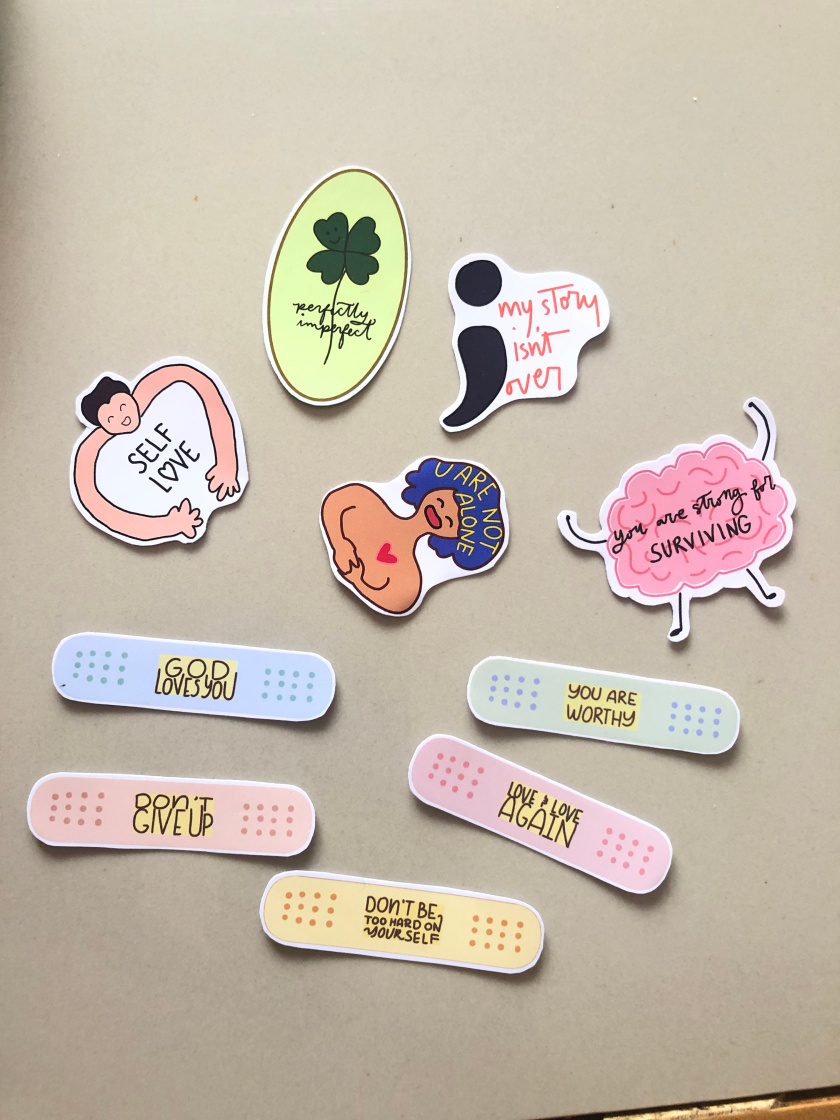This article was published on Sunstar Davao’s February 24, 2020 issue. To read about #AllYouNeedToKnow, follow Sunstar Davao on Facebook or visit their website here.
One of the first things I vividly remember about saving the environment is a special features cut in one of our Shrek DVDs. It was a reminder to conserve water by turning off faucets when they aren’t in use and when you’re brushing your teeth. After watching that video, I proceeded to take note of all the times I let the faucet run while I brushed my teeth and how much of it is wasted.
I think this is what sets our generation apart from the previous generation: we grew up in the midst of environmental destruction and as grown ups, we experience the consequences of that destruction: climate change, mass extinction, & water scarcity. We’re aware of the effects of pollution and deforestation and it’s something we want to address. Then came the rise of the sustainability movement.
Sustainability or living sustainably is a movement that is very evident in social media today. Metal straws, cute canvas bags, charcoal toothbrushes are only a minuscule example of the size of this movement. Ideally, sustainable living is thought to be a solution to pollution in a sense that consumers buy less and make use of what they already have. This is the avoidance of the depletion of natural resources in order to maintain an ecological balance.
This, however, is not always the case. Not long after the movement was introduced, companies and different brands jumped on the bandwagon and mass-produced the very things that were aimed to be sustainable, defeating the idea of sustainable living entirely. The entire lifestyle banked on the fact that human beings need to reduce their carbon footprint by opting for choices that consume less energy, less plastic, and produce less waste.
There are people, however, who practice sustainable living and aim towards echoing the movement to the majority. This is found in the rise of many Zero-waste groceries and stores. Davao is surprisingly one of the cities that is slowly adapting to this movement. Just recently, the city talked about reducing the use of single-use plastic. Davao’s first zero-waste grocery, Croft Bulk Store, opened its second branch just last year. The sustainability movement surely isn’t lost in Davaoeños as we find ways of living sustainably and this is what brings us to the main topic of this article, The Loop Community Trade Fair.
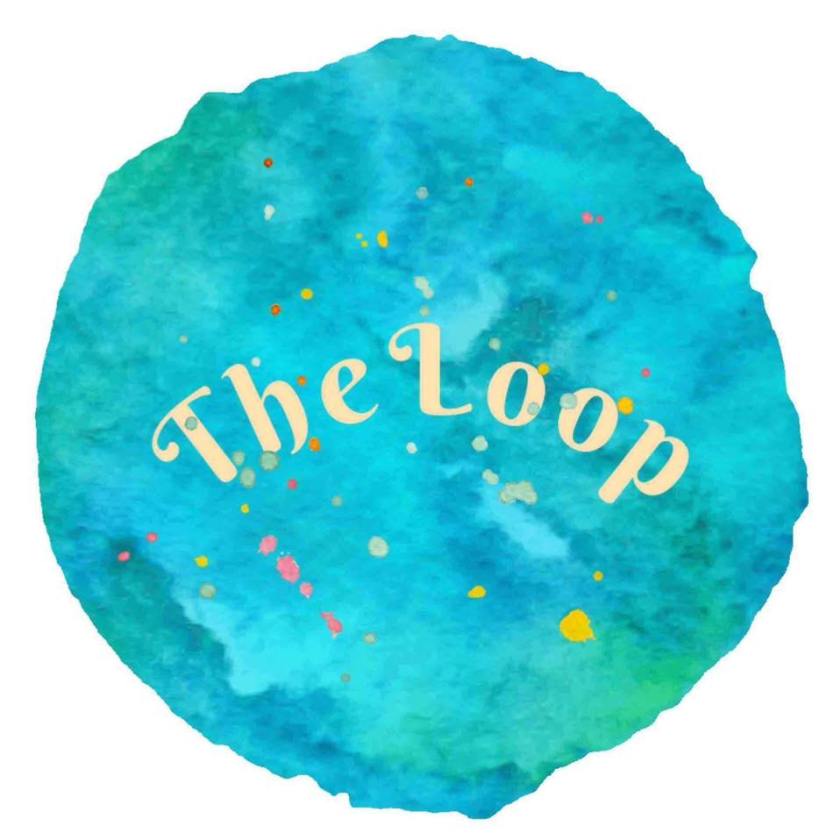
The Loop started as an idea between three friends who wanted to get rid of their old clothes and who simply wanted to have a big garage sale. The three friends were Alyssa Capuno, the owner of Mari Yoga Studio, Denise Guirgen, the founder of Masetera.ph, and LA Subido, a Fusion Dance Crew founding member. They gathered and discussed how they could organize a big garage sale and gradually, more of their friends came in and pitched products they could sell. Not long after, the three girls planning a garage sale grew to become a bazaar with sixteen tenants in October 2019. This was the first Loop Community Trade Fair.
The fair has since hosted two more events in December 2019 and February 2020, respectively. The Loop definitely has grown bigger and even more sustainable, inviting tenants and consumers who vary in terms of the level of living sustainably. Most products in the fair are eco-friendly, organic and of course, sustainable.
I first attended the Loop Community Trade Fair in December 2019 and I came up with quite a haul. The things I were drawn to were the clothes! I am a proud supporter of ukay finds and the fair offers their own share of secondhand clothes. Unlike the traditional ukay, the clothes found in the fair are clean, laundered and I would say, better. This is due to the fact that you actually know who the clothes belonged to and some even tell you stories behind them!
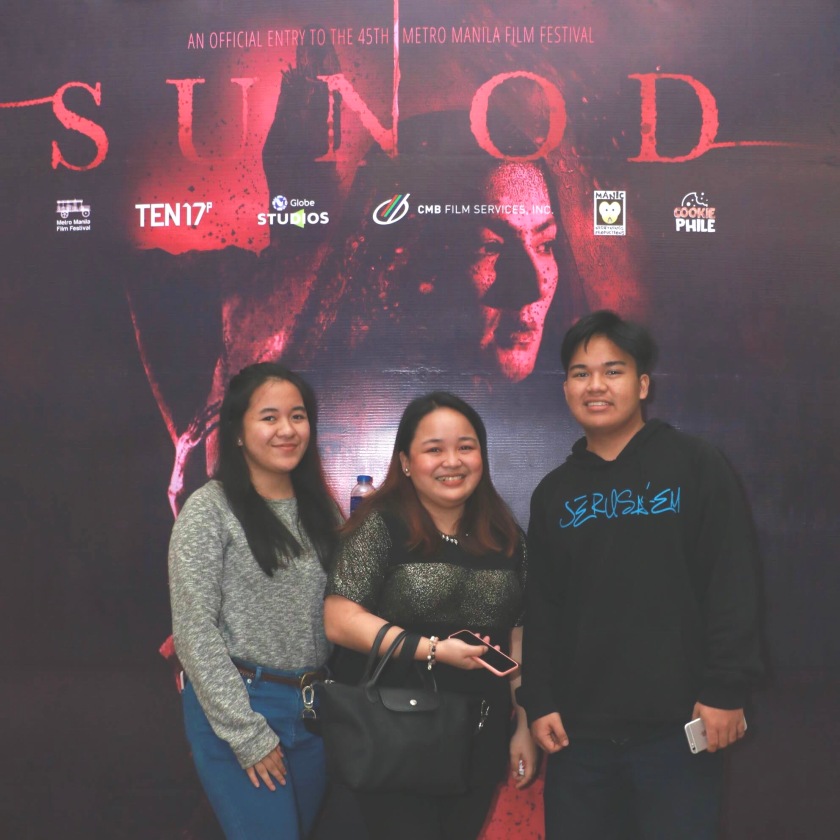
What most people don’t realize is that the clothes we purchase from large-scale companies who mass produce clothes are one of the World’s biggest contributors to plastic in the ocean. This is due to the number of microfibers and microplastics there are in the clothes they produce. While this is the sad truth, it is important to note that some name brands are actually moving toward sustainable fashion, a movement that advocates less waste.
The pieces I purchased in the Loop fair were the following: a sparkly black top for Php 100, a silk sleeveless top for Php 50, two name-brand pants for Php 100 each, and a loose, linen navy blue top that cost Php 50. I also picked up some jackets for only Php 150 and 300, respectively. These items were all in great condition and smelled great!
Another set of things I purchased were jewelry. I was a fan of those elaborate necklaces everyone seemed to wear in the mid-2000s. Call it an influence from Gossip Girl, if you will. I was surprised to find three statement necklaces for only Php 50.00 each! They also showed me a pair of wooden, rustic earrings that cost only a mere Php 20.00! Yup, you read that right!
I not only lessened my carbon footprint, but saved a ton of money by purchasing secondhand items. If you think about it, if I purchased all of these items at the mall or at a name brand branch, I would’ve most likely spent over Php 6,000.00. At the Loop Community Trade Fair, I only spent a mere Php 1,070 for all of the 11 items! Crazy, right? I guess the old saying is true, “one man’s trash is another one’s treasure.”
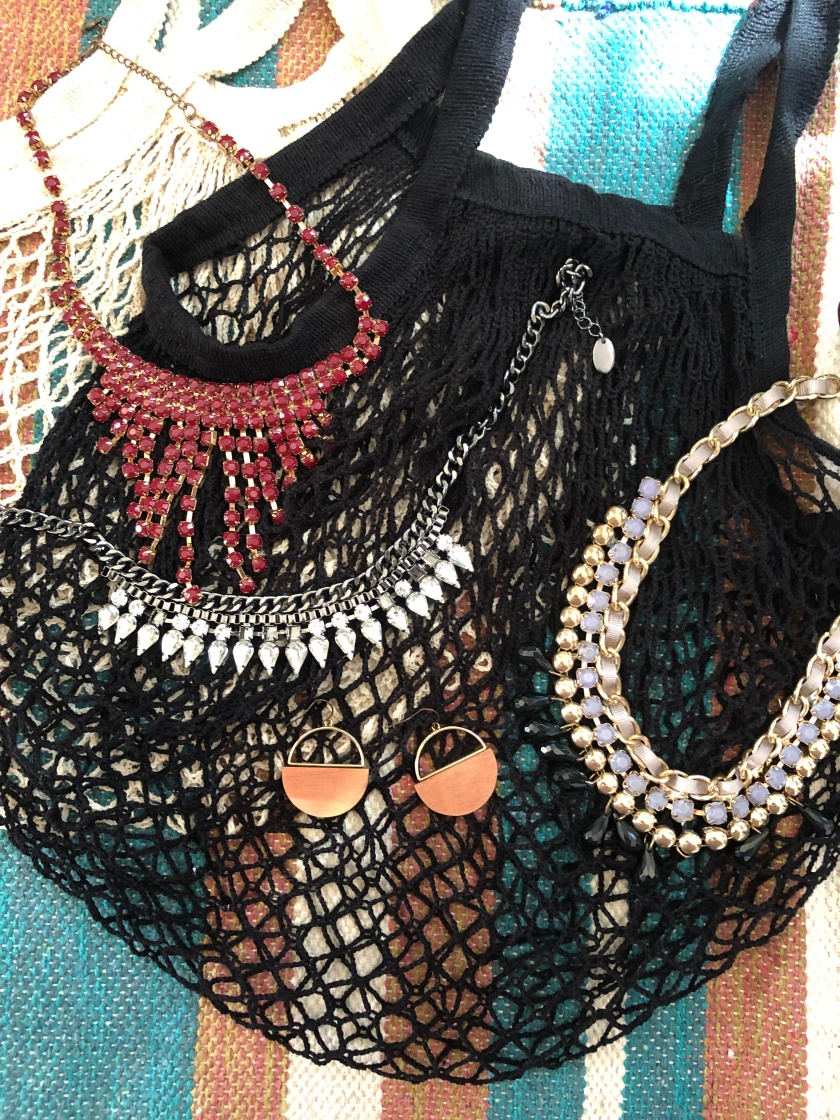
The second Loop Fair I attended was the most recent and largest one to date, the February 2020 one. A lot of people attended the event with their kids, who had fun picking out old toys and clothes. I purchased a lot more sustainable and eco-friendly goods this time. I got detergent, dishwashing soap and fabric conditioner from Eco’s Refillery. I also received goods from Himas Essentials and am trying to make the shift from name-brand deodorant to organic deodorant. I also got some lip scrubs, body scrubs, and an insect repellent from Reset.ph.
Last but definitely not the least, Loop Community Trade Fair offers delicious and interesting food and drinks. You’ll probably never get hungry strolling about the fair with Fabian’s Tacos. They offered vegan tacos in the recent fair and also sell jars of salsa and chips for only Php 100.00. Sulit!
My friend who owns Desserts by Kay also joined the last bazaar and said the outcome was great! She sold all sorts of pastries ranging from brownies, revel bars, cookies, and even mookies! Her sugar cookies were the ones that were a crowd favorite, though!
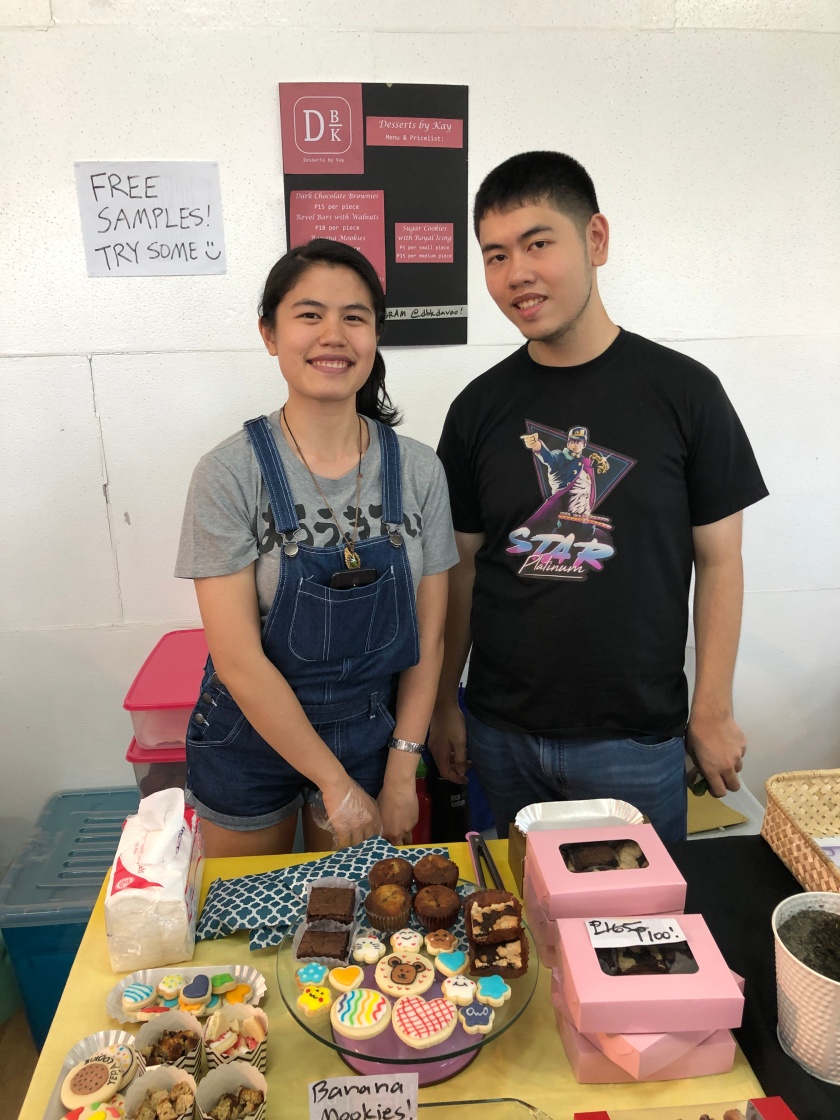
Overall, community fairs and bazaars like The Loop are perfect for communities like Davao City. We’re a large city that is slowly adapting to the change in lifestyle. According to Alyssa Capuno, we’re the first generation to experience the effects of climate change and we’re the only generation to stop or even minimize its impact in the future. Our world needs to realize that all our resources are finite and the only way we can keep using these resources in the future generation is to minimize our current usage.
She emphasized that we don’t need to buy new things but rather, reuse, recycle, and even upcycle. We can opt to avoid single-use products and choose reusable ones because they are of higher quality and are cost-efficient, too. Living sustainably doesn’t just reduce waste production, but also lessens the cost of living. Our world has become used to convenience and this convenience comes at a cost. What earlier generations probably didn’t expect is how the Earth can charge these costs.
The Loop Community Trade Fair is seen as an opportunity to educate Davaoeños on how to live sustainably and I think is the perfect way to address climate change in our own little way. Some people would argue that one change wouldn’t even make a comparable difference in the Earth’s state today but the fact is these small changes can echo throughout the community and it can clearly be seen in the growth of the people who opt for sustainable choices. Let’s make small changes today! The next Loop Fair is scheduled on April 2020, and is promised to be even bigger. See you there!
